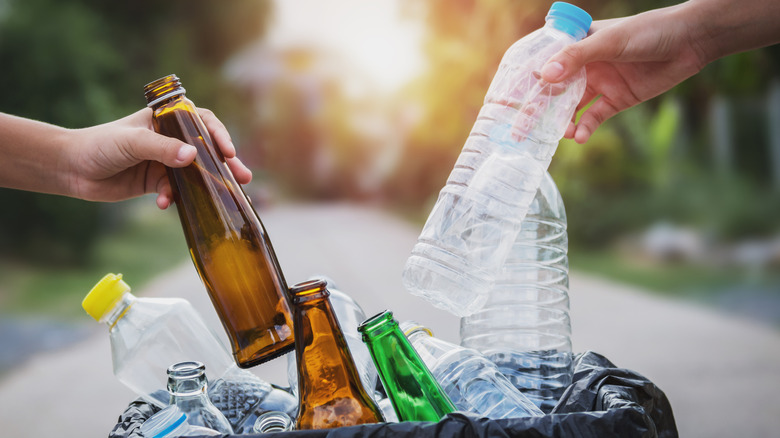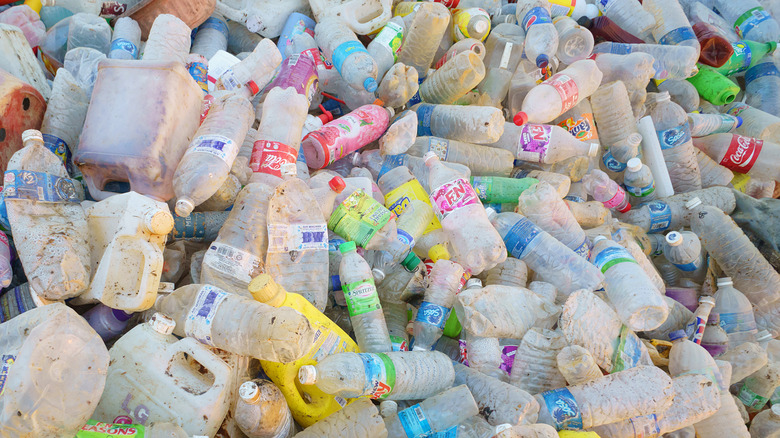What Happens To Plastic Bottles After You Recycle Them
Imagine the crushing hurt of being a plastic bottle. Stuffed full of chemicals, plastered in commercialism, and bounced painfully onto the floor by a rebellious teenager too cool to operate a trash can, life as a disposable bottle would definitely leave a lot to be desired.
However, plastic is now clogging up every available scrap of space it finds. Plastic waste is famously difficult to deal with. According to BBC, only 9% of all plastic ever made has been recycled into new forms of plastic. (Specifically, the report states that "Efficiently recycling plastic by conventional means is notoriously difficult.")
Advances in recycling methods and public awareness have developed to help tackle the issues around thrown-out plastic (a report by National Geographic revealed that America produces more plastic waste than any other country), but the process of re-using plastic bottles isn't as straightforward as turning leaves into compost. So, what really happens when you recycle a plastic bottle?
Plastic bottles you recycle could end up in Malaysia or Indonesia
The World Wildlife Fund-Australia (WWF) reported in 2018 that a plastic bottle takes an average of 450 years to decompose, emphasizing the need to encourage as much recycling as possible to reduce pollution through manufacturing and disposal. Hence the requirement for curbside recycling, which, once collected, is sifted through to identify all of the re-usable goods, including plastic, glass, and cardboard (via The Atlantic).
The Guardian details that the majority of the useful waste is then processed further, with hungry businesses picking up every last spec of potentially profitable plastic. Figures released by Research and Markets (posted on Cision PR Newswire) suggest that the global plastic recycling market is worth almost $27 billion a year. Although processing of waste produced by rich countries like the U.S. should generally take place within the country of origin, The New York Times reports that rubbish is often shipped to poorer countries, such as Malaysia and Indonesia.
Finally, The Guardian notes that plastic bottles meet their end by being washed and reused or melted down to create brand new plastic products. Even with a slick sorting process, environment strategies, and big bucks to be made, The Atlantic states that recycled plastic bottles can sometimes cost more than molding a new one from scratch, suggesting that far more incentives and effort are required if the planet's plastic predicament is ever going to be solved.

